
Every year since our founding five years ago, we have recognized Wisconsin’s most influential Black and Latino leaders. It’s become the most anticipated thing we do. Every year, I’ve intended these lists to highlight the beauty of the diversity across our state. I want kids here in Wisconsin to see role models of people who are succeeding, to know that it’s possible for African Americans and Latinos to achieve great things here.
Every year, after we publish every list, we hear from the community. We hear genuine excitement and gratitude for the recognition. We hear new names to include in future lists.
And, invariably, we hear, “When will you honor leaders from other communities of color?”
The truth is that we have wanted to. For several years, we have wanted and intended to honor our Native American and Asian American brothers and sisters. But the fact is we can only do so with the help, trust and engagement of those communities. We have spent the last few years building that trust, building those relationships, learning about those communities.
And now, finally, I am confident — we are ready.
This list represents something that’s never been done. This week we shine a statewide spotlight on the dedicated leaders of Wisconsin’s indigenous communities. The people we highlight this week are elected leaders, business leaders, community leaders, doing difficult, important work, often in the face of discrimination and literally generations of oppression.
And there will be more — later this year, we will publish our first list of Wisconsin’s most influential Asian Americans, in addition to new editions of our lists of the most powerful Black and Latino leaders.
We are also aware that this list, like every other, is not comprehensive. There are, without a doubt, more than 38 influential Native American leaders doing good work in Wisconsin. We hope you will let us know about people in your community who we can include on future lists. For now, though, we just want to introduce you to a few of the people doing the work, often behind the scenes and without the accolades, across Wisconsin.
You might know a few of these names, but there’s a good chance that most of them will be new to you. I commend you to get to know them. Reach out to those living and working in your communities. Learn from them, network, create partnerships. And spread the word — let others in your network know that we have people of all ethnicities living and working across Wisconsin to make this state a good and prosperous place for all.
Henry Sanders, Jr
CEO, 365 Media Foundation
Publisher, Madison365 and FoxValley365
This is the first of a five-part series.
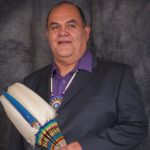 Ned Daniels, Jr. is the chairman for the Forest County Potawatomi Community, a band of the Potawatomi, many of whom live on the Forest County Potawatomi Indian Reservation. Last month, Daniels, Jr. delivered the State of the Tribes address at the Wisconsin state Capitol where he urged Wisconsin policymakers to work together to fight the scourge of opioid abuse that he said was hitting the state’s native populations very hard.
Ned Daniels, Jr. is the chairman for the Forest County Potawatomi Community, a band of the Potawatomi, many of whom live on the Forest County Potawatomi Indian Reservation. Last month, Daniels, Jr. delivered the State of the Tribes address at the Wisconsin state Capitol where he urged Wisconsin policymakers to work together to fight the scourge of opioid abuse that he said was hitting the state’s native populations very hard.
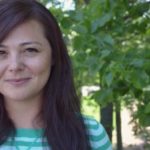 Jenny Van Sickle, an Alaskan Native of Tlingit and Athabaskan heritage, is the first person of color to serve on the Superior City Council. She has been elected twice with “overwhelming support” and in 2019 won the Women of Excellence from Wisconsin Leadership Summit. She is known as a strong voice for the underrepresented population of Northern Wisconsin and takes on the toughest challenges.In August 2019, she co-sponsored a bill in Superior that prohibits the use of conversion therapy LGBTQ+ and supported the efforts of the Mayor’s Commission for Communities of Color to formally recognize Indigenous Peoples Day.
Jenny Van Sickle, an Alaskan Native of Tlingit and Athabaskan heritage, is the first person of color to serve on the Superior City Council. She has been elected twice with “overwhelming support” and in 2019 won the Women of Excellence from Wisconsin Leadership Summit. She is known as a strong voice for the underrepresented population of Northern Wisconsin and takes on the toughest challenges.In August 2019, she co-sponsored a bill in Superior that prohibits the use of conversion therapy LGBTQ+ and supported the efforts of the Mayor’s Commission for Communities of Color to formally recognize Indigenous Peoples Day.
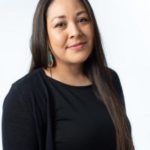 Danielle Yancey, who comes from the Menominee and Santee Dakota Sioux Nations, is the director for the Native American Center for Health Professions at the School of Medicine and Public Health at University of Wisconsin-Madison. She has worked in public service for 15 years focusing on programs that promote social justice, according to her personal bio. Previously, she served as the tribal liaison for the State of Wisconsin Department of Transportation in tribal affairs and as the Career Pathways coordinator at UW Health focusing on workforce development in the healthcare system. Yancey is also co-founder of the nonprofit organization, Spirit of a Woman, which empowers and uplifts indigenous girls and women.
Danielle Yancey, who comes from the Menominee and Santee Dakota Sioux Nations, is the director for the Native American Center for Health Professions at the School of Medicine and Public Health at University of Wisconsin-Madison. She has worked in public service for 15 years focusing on programs that promote social justice, according to her personal bio. Previously, she served as the tribal liaison for the State of Wisconsin Department of Transportation in tribal affairs and as the Career Pathways coordinator at UW Health focusing on workforce development in the healthcare system. Yancey is also co-founder of the nonprofit organization, Spirit of a Woman, which empowers and uplifts indigenous girls and women.
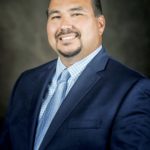 Tehassi Hill is the Chairman of the Oneida Nation. Prior to his current role, Chairman Hill served two terms as a Council Member for the Oneida Business Committee, the elected government officials for the Oneida Nation. On behalf of the Oneida Nation, Chairman Hill serves on the Board of Directors for the Great Lakes Inter-Tribal Council, which is a consortium of 11 Tribes in Wisconsin and Lac Vieau Desert of Michigan and is liaison for the National Congress of American Indians. Chairman Hill also serves on the Natural Resources Damage Trustee Council and is a designee to the Environmental Protection Agency’s Regional Tribal Operating Committee. Chairman Hill was born and raised on the Oneida reservation and graduated from the Oneida Nation High school. He studied Business Administration at the UW-Green Bay and operated a successful industrial, commercial, and residential painting business for six years prior to working in tribal government. Chairman Hill and his wife, Kanatihal, have nine children and reside in Oneida, Wisconsin. He likes to spend his leisure time hunting, fishing and being actively engaged with his family and the greater community
Tehassi Hill is the Chairman of the Oneida Nation. Prior to his current role, Chairman Hill served two terms as a Council Member for the Oneida Business Committee, the elected government officials for the Oneida Nation. On behalf of the Oneida Nation, Chairman Hill serves on the Board of Directors for the Great Lakes Inter-Tribal Council, which is a consortium of 11 Tribes in Wisconsin and Lac Vieau Desert of Michigan and is liaison for the National Congress of American Indians. Chairman Hill also serves on the Natural Resources Damage Trustee Council and is a designee to the Environmental Protection Agency’s Regional Tribal Operating Committee. Chairman Hill was born and raised on the Oneida reservation and graduated from the Oneida Nation High school. He studied Business Administration at the UW-Green Bay and operated a successful industrial, commercial, and residential painting business for six years prior to working in tribal government. Chairman Hill and his wife, Kanatihal, have nine children and reside in Oneida, Wisconsin. He likes to spend his leisure time hunting, fishing and being actively engaged with his family and the greater community
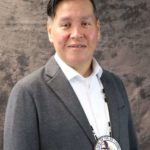 Marlon WhiteEagle is president of the Ho-Chunk Nation, an office he won in June 2019. Prior to his election, he was editor of the Nation’s newspaper, Hocak Worak, where he earned national awards for his photography, reporting, and editorials. After being elected, he said he plans to increase transparency and accountability within the Nation. He has initiated YouTube video messages to share information with tribal members. He also hosts the podcast “Ho-Chunk Voice.” President WhiteEagle is a veteran of the U.S. Marine Corps and holds a Liberal Arts degree from MiraCosta College.
Marlon WhiteEagle is president of the Ho-Chunk Nation, an office he won in June 2019. Prior to his election, he was editor of the Nation’s newspaper, Hocak Worak, where he earned national awards for his photography, reporting, and editorials. After being elected, he said he plans to increase transparency and accountability within the Nation. He has initiated YouTube video messages to share information with tribal members. He also hosts the podcast “Ho-Chunk Voice.” President WhiteEagle is a veteran of the U.S. Marine Corps and holds a Liberal Arts degree from MiraCosta College.
 Wenona Wolf is policy and legislative director for Wisconsin Lt. Governor Mandela Barnes. A member of the Mille Lacs Band of Ojibwe, Wolf spent 10 years as communications and development director for Kids Forward (formerly known as Wisconsin Council of Children and Families). She served as president of the board of Community Shares of Wisconsin and vice president of the board of the Native American health organization We Are Healers. She also served on the boards of Planned Parenthood Advocates of Wisconsin, Wisconsin Alliance for Women’s Health, Bayview Foundation and Wisconsin Women’s Network. In 2017 she earned both national and local recognition as one of the Native American 40 Under 40 and a Brava Magazine “Woman to Watch.”
Wenona Wolf is policy and legislative director for Wisconsin Lt. Governor Mandela Barnes. A member of the Mille Lacs Band of Ojibwe, Wolf spent 10 years as communications and development director for Kids Forward (formerly known as Wisconsin Council of Children and Families). She served as president of the board of Community Shares of Wisconsin and vice president of the board of the Native American health organization We Are Healers. She also served on the boards of Planned Parenthood Advocates of Wisconsin, Wisconsin Alliance for Women’s Health, Bayview Foundation and Wisconsin Women’s Network. In 2017 she earned both national and local recognition as one of the Native American 40 Under 40 and a Brava Magazine “Woman to Watch.”
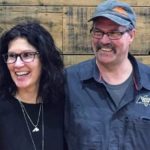 Curt and Linda Basina, members of the Red Cliff band of Lake Superior Chippewa, own and operate Copper Crow Distillery near Bayfield, becoming the first Native American distillery owners in the United States when they opened in April 2018. They opened on private land within the Red Cliff Reservation, which exempted them from a 200-year-old ban on distilling alcohol on tribal lands. (That ban was finally lifted just a few months after Copper Crow opened.) They’ve been a couple since high school and hatched the idea for Copper Crow during road trips to visit distilleries and wineries. That wandering led, in part, to the name: “Like the crow, we wondered about our purpose,” they wrote on the Copper Crow website. “Why are we working so hard? How can we contribute to our community? How can we share our enjoyment and the bounty of this beautiful, pure, Lake Superior place? Like the crow, we have wandered. As we’ve wandered, we’ve made connections with our neighbors. As we’ve connected, we’ve learned to enjoy what is closest to us.”
Curt and Linda Basina, members of the Red Cliff band of Lake Superior Chippewa, own and operate Copper Crow Distillery near Bayfield, becoming the first Native American distillery owners in the United States when they opened in April 2018. They opened on private land within the Red Cliff Reservation, which exempted them from a 200-year-old ban on distilling alcohol on tribal lands. (That ban was finally lifted just a few months after Copper Crow opened.) They’ve been a couple since high school and hatched the idea for Copper Crow during road trips to visit distilleries and wineries. That wandering led, in part, to the name: “Like the crow, we wondered about our purpose,” they wrote on the Copper Crow website. “Why are we working so hard? How can we contribute to our community? How can we share our enjoyment and the bounty of this beautiful, pure, Lake Superior place? Like the crow, we have wandered. As we’ve wandered, we’ve made connections with our neighbors. As we’ve connected, we’ve learned to enjoy what is closest to us.”
More influential Native American leaders coming in Part 2 tomorrow!



